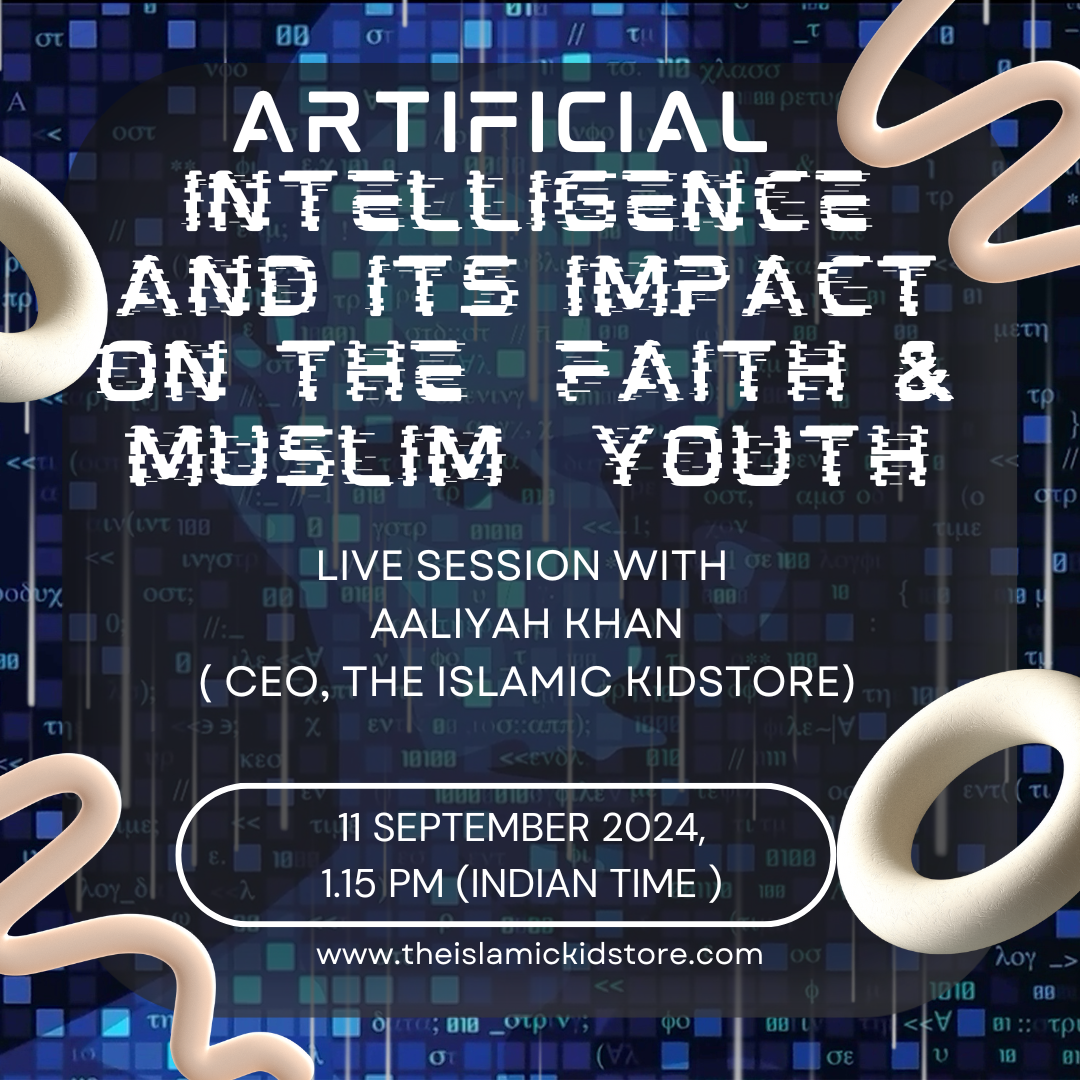
Sep 14 , 2024
Artificial Intelligence (AI) in Islam: Embracing Innovation While Staying True to Faith
Assalamu Alaikum, dear brothers and sisters,
Today, we are exploring a topic that is shaping the future of our world—Artificial Intelligence (AI). You may wonder why we are discussing this in the context of Islam. The reality is that AI is advancing rapidly, impacting every aspect of our lives. It’s crucial for the Muslim Ummah and Islamic scholars to discuss this technology, raise awareness, and guide how we can lead a balanced life with AI.
AI is now everywhere—from our smartphones to our workplaces—and it’s transforming the way we live, learn, and interact. But as we move forward, how can we ensure we are using AI to enhance our spiritual journey while safeguarding our faith?
AI as a Tool for Islamic Learning
Imagine a young Muslim living in a remote village with no access to a Quranic teacher. AI-powered apps like Quran Companion, Muslim Pro, and Tarteel AI are making a difference. These apps provide personalized learning experiences, allowing users to memorize and recite the Quran with real-time feedback on pronunciation and tajweed. For Muslims who don't have access to traditional learning, these AI-driven tools are invaluable.
As the Prophet Muhammad (peace be upon him) said, “The best among you are those who learn the Quran and teach it” (Sahih Bukhari). With AI, the global accessibility of Quranic education has increased tremendously.
Additionally, AI-powered Zakat calculation apps have made it easier for Muslims to fulfill the third pillar of Islam. These apps analyze financial data to ensure accurate Zakat calculation, even offering guidance through Zakat GPTs. They are a remarkable blend of Islamic principles and modern technology.
In the realm of finance, Shariah-compliant robo-advisors are helping Muslims make ethical investments in accordance with Islamic law. These systems guide users in making decisions that avoid haram elements like interest, allowing them to engage in the financial world without compromising their faith.
AI in Da’wah: Spreading Islam Globally
AI is also making strides in spreading Islam. A notable example is the development of Quranic chatbots that answer questions about Islam in real-time and in multiple languages. Allah says in the Quran, “Invite to the way of your Lord with wisdom and good instruction” (Surah An-Nahl, 16:125). These chatbots remove barriers like language and location, making Islamic knowledge accessible to anyone, anywhere.
However, it’s worth noting that some of these apps are still prone to errors. Ensuring the accuracy of Islamic content provided by AI remains an ongoing challenge, but the potential for global outreach is vast.
The Challenges: A Double-Edged Sword
AI, while promising, also comes with significant challenges. AI-driven platforms like TikTok and Instagram use algorithms that are designed to keep users engaged, but often lead them down paths that promote vanity, materialism, or even haram activities. A young Muslim who starts watching Islamic content can quickly be led astray by content that does not align with Islamic values. Allah warns us, “Do not follow that of which you have no knowledge. Indeed, the hearing, the sight, and the heart—about all those [one] will be questioned” (Surah Al-Isra, 17:36).
In some countries, AI-powered social credit systems monitor citizens' behavior, grading them on their actions. This raises concerns about potential restrictions on religious freedom, including Islamic practices.
Another major concern is the dehumanization of interactions through AI. Take AI-powered mental health bots like Woebot or Replika, which offer emotional support but lack the empathy and spiritual guidance of a human counselor. AI, no matter how advanced, cannot replicate the mercy and compassion that Islam teaches us. As the Prophet Muhammad (peace be upon him) said, “The merciful are shown mercy by the Merciful. Be merciful on the earth, and you will be shown mercy from above” (Sunan al-Tirmidhi).
A recent experiment showed that AI-generated videos of scholars could easily spread misinformation. This underscores the need for careful use of AI in areas as sensitive as religious teachings.
Ethical AI: The Importance of Justice
AI systems, whether in facial recognition or hiring algorithms, often reflect the biases of their creators. In some cases, AI-driven systems have been found to unfairly target certain racial or ethnic groups, raising concerns about discrimination. Islam emphasizes the importance of justice, as Allah says, “O you who have believed, be persistently standing firm in justice, witnesses for Allah” (Surah An-Nisa, 4:135).
Muslim youth entering the field of AI must advocate for ethical AI practices. These systems should promote justice, fairness, and equality, aligned with the principles of Islam.
Navigating the Future: Balancing AI with Faith
So, what’s the solution? It lies in balance. We cannot ignore the advancements of AI, but we should not blindly accept them either. Islam teaches us to be a balanced Ummah (Surah Al-Baqarah, 2:143)—taking the best from technology while remaining grounded in faith.
Our youth must be pioneers in AI technology, using it to serve the greater good—whether through Islamic education, finance, or social justice. But as they innovate, they must always align their work with Islamic ethics and principles.
In a world where machines are learning to think, we must remember the power of the human heart, guided by faith. AI can enhance our lives, but only our connection to Allah gives us true purpose and wisdom.
Let technology serve humanity, but let faith always guide our path.
May Allah guide us to use AI for good and protect us from its harms. Ameen.
Aaliyah Khan (CEO, The Islamic kidstore)